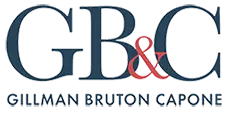In the Matter of Santiago-Monteverde, what appeared to be a simple Chapter 7 Consumer Bankruptcy, was ultimately decided in the Debtor’s favor of by the United States Second Circuit Court of Appeals. Its decision was based upon the advisory opinion from the New York Court of Appeals – the highest court of the State. The decision reversed the decision of the Bankruptcy Court and the United States District Court.
Santiago-Monteverde filed for Chapter 7 bankruptcy and listed the value of her unexpired rent-stabilized lease as personal property on Schedule B of her bankruptcy petition which was exempt from the “bankruptcy estate” under N.Y. Debt. & Cred. Law 282(2). Santiago-Monteverde, 2014 NY Slip Op 08051, Decided on November 20, 2014. See here for the Second Circuit opinion. The precise question presented to the Court of Appeals by the Second Circuit was whether the rent-stabilized apartment in which the debtor had lived for over forty years was property of the the Debtor’s Bankruptcy Estate.
Natural Rights theories of property notwithstanding, the question of what is – and what is not – a debtor’s property pursuant to 11 U.S.C. §541 has occupied a great deal of time of Bankruptcy Courts who must frequently decide what property rights the law creates, how these property rights are classified under the Bankruptcy Code, and whether the right can be exempted from creditors.
The debtor Mary Santiago-Monteverde lived in her apartment, which was rent-stabilized, for over forty years. Because her husband died, she was unable to pay her credit card debts of approximately $23,000 and filed for Chapter 7 bankruptcy.
She initially listed her apartment lease on Schedule G of her bankruptcy petition as a standard unexpired lease. Shortly thereafter, the owner of the apartment approached the bankruptcy trustee, respondent John S. Pereira, and offered to buy Santiago-Monteverde’s interest in the lease. When the trustee advised her that he planned to accept the offer, she amended her filing to list the value of her lease on Schedule B as personal property exempt from the bankruptcy estate under DCL § 282 (2) as a “local public assistance benefit.” Santiago-Monteverde supra.
After the protracted proceedings outlined above, the Second Circuit ultimately remanded the issue to the NY State Court of Appeals, the highest court in NY, to determine whether her rent-stabilized lease was “property” or a “public benefit”. Fortunately for the Debtor, the Court of Appeals ruled in her favor, holding that “tenant’s rights under a rent-stabilized lease are a local public assistance benefit” and not available for liquidation in a Chapter 7 case. See NY State Court of Appeals decision here.
Left unanswered by the opinions of the Second Circuit and the New York Court of Appeals is why she choose to file the Bankruptcy Petition which put at risk her most valuable asset – her home and whether she fully reviewed this issue before her case was filed. The NY Court of Appeals decision was not unanimous – two of the seven justices on the Court wrote dissenting opinions. Given her age, what appears to be her modest circumstances, and the amount of the debt, were other less risky solutions to her problems that may have been available?
Although New Jersey does not have a comparable law, the filling of an ill-advised Chapter 7 Bankruptcy Petition can put a debtor’s home at risk. Under the Bankruptcy Code, when a Bankruptcy petition is filed with the Court, a Chapter 7 Trustee is appointed and under a duty to identify any assets which can be liquidated for the benefit of the creditors, subject to legal protections. One of many examples is when an inexperienced attorney files a Chapter 7 Consumer Bankruptcy for a senior citizen who has substantial equity in their home because of credit card debt or other unsecured debt or fails to adequately review all assets.
The Bankruptcy Code allows a state to create a homeowners exemption that can be many times the the federal exemption of $22,975.00 (per individual) which is doubled for married couples. For example, Massachusetts has a Homestead Exemption of $125,000.00 which is doubled for couples and an exemption which may be as high as $1,000.000.00 for disabled people and those over 62 years of age.
New Jersey does not have a state “homestead” exemption and therefore homeowners must use the Federal Homestead Exemption (11 U.S.C. §522(d)(1)). Those who have unprotected equity in their home and file a Chapter 7 Petition risk the sale of home by the Trustee if the equity in their home that exceeds the amount of the Federal Homestead Exemption plus the reasonable and necessary costs of sale.
Bankruptcy is strong medicine which should be used only after consultation with an expert attorney to determine whether it is the interest of a debtor to do so.


